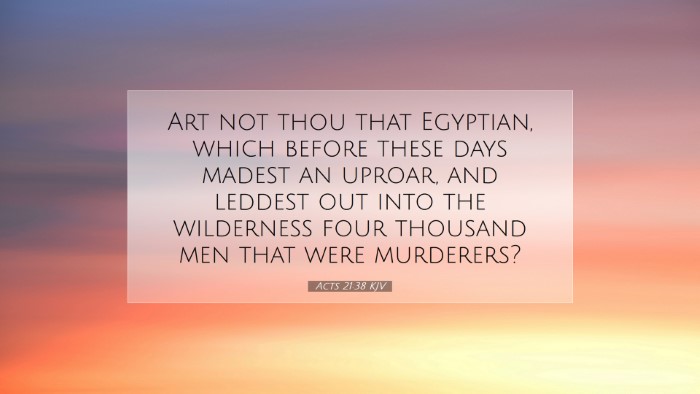Old Testament
Genesis Exodus Leviticus Numbers Deuteronomy Joshua Judges Ruth 1 Samuel 2 Samuel 1 Kings 2 Kings 1 Chronicles 2 Chronicles Ezra Nehemiah Esther Job Psalms Proverbs Ecclesiastes Song of Solomon Isaiah Jeremiah Lamentations Ezekiel Daniel Hosea Joel Amos Obadiah Jonah Micah Nahum Habakkuk Zephaniah Haggai Zechariah MalachiVerse
Acts 21:1 Acts 21:2 Acts 21:3 Acts 21:4 Acts 21:5 Acts 21:6 Acts 21:7 Acts 21:8 Acts 21:9 Acts 21:10 Acts 21:11 Acts 21:12 Acts 21:13 Acts 21:14 Acts 21:15 Acts 21:16 Acts 21:17 Acts 21:18 Acts 21:19 Acts 21:20 Acts 21:21 Acts 21:22 Acts 21:23 Acts 21:24 Acts 21:25 Acts 21:26 Acts 21:27 Acts 21:28 Acts 21:29 Acts 21:30 Acts 21:31 Acts 21:32 Acts 21:33 Acts 21:34 Acts 21:35 Acts 21:36 Acts 21:37 Acts 21:38 Acts 21:39 Acts 21:40

